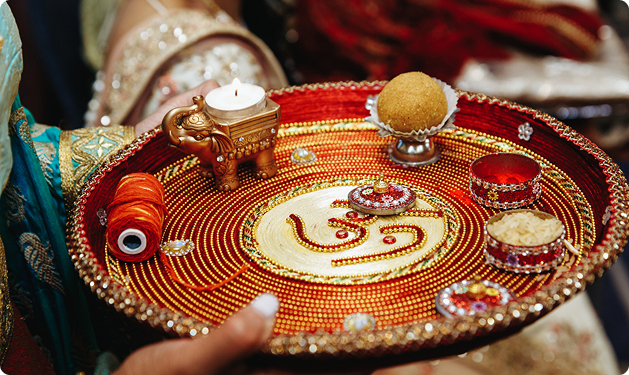Satyanarayan Puja: A Simple Ritual For Prosperity And Blessings At Home
Sep 11, 2025

Diwali, also known as the Festival of Lights, is one of the most popular and widely celebrated festivals in India. This festival is widely celebrated by Indians living outside India. It's not just a single day, but a grand festival that lasts several days, with each day having its own meaning and traditions. At its heart, Diwali represents the victory of light over darkness. It also celebrated for good over evil, and knowledge over ignorance.
The word "Diwali" has been taken from the Sanskrit word "Deepavali". It means "a row of lights." This is why homes, streets, and temples glow with thousands of oil lamps (called diyas) during this time.
In 2025, Diwali falls on Monday, October 20th, marking a very special day on the Hindu lunar calendar. Across India and among Indian communities worldwide, families will gather, light lamps, share sweets, and celebrate togetherness. For many, it feels like a mix of Thanksgiving, Christmas, and New Year's all rolled into one.
The origins of Diwali can be traced back to several stories and legends from ancient Hindu scriptures, but the most famous is from the epic Ramayana. According to this story, Lord Rama, the prince of Ayodhya, returned home after 14 years of exile.
During his exile, he defeated the demon king Ravana, who had kidnapped Rama's wife, Sita. When Rama finally returned home with Sita and his brother Lakshmana, the people of Ayodhya lit thousands of lamps to celebrate his victory and to welcome him back. This is why lighting lamps remain the essential part of Diwali today.
But that's not the only story. In some regions of India, Diwali is linked to the victory of Lord Krishna over the demon Narakasura, which also symbolizes the triumph of good over evil. In other places, people celebrate the return of the Pandavas (from the Mahabharata) after years of exile. These stories may differ, but the message is always the same: hope, renewal, and the power of good to overcome bad.
While Diwali is most strongly associated with Hindu traditions, it is also celebrated by followers of other religions, each giving it a special meaning.
For Hindus, Diwali is a time to worship Goddess Lakshmi, related to wealth and prosperity, and Lord Ganesha, the remover of obstacles. Families perform a special prayer ceremony (Lakshmi Puja) to invite blessings for health, happiness, and financial success in the year ahead.
For Jains, Diwali marks the day when Lord Mahavira, the last of the Jain Tirthankaras, attained nirvana (spiritual liberation).
For Sikhs, the day is remembered as the time when their sixth Guru, Guru Hargobind Ji, was released from prison along with 52 other kings. For Newar Buddhists in Nepal, Diwali is also celebrated as a festival of renewal and light.
This shows how Diwali is not just one religion's festival, but a celebration with deep meaning across different faiths, making it even more special.
Diwali is not just about one evening; it usually stretches over five days of celebration, each with its customs and importance.
Beyond these five days, the traditions of Diwali are beautiful and colorful:
One of the most amazing things about Diwali is how it brings people together. Even though the festival is rooted in Indian traditions, it has spread far beyond India's borders. Today, Diwali is celebrated in countries like the United States, Canada, the UK, Australia, Singapore, and South Africa by Indian communities and also by people from other backgrounds who enjoy the spirit of the festival.
In the United States, for example, cities like New York, Houston, and Chicago host significant Diwali events. There are Diwali melas (fairs) with cultural performances, Indian food stalls, traditional dances, and fireworks displays. Schools with Indian-American students often hold classroom celebrations where kids share sweets and explain the meaning of Diwali to their classmates.
While Diwali has deep historical and religious roots, it continues to evolve with time. In today's world, it has also become a celebration of family bonding, positivity, and renewal. Many people use Diwali as a chance to:
Diwali is not only the festival of lights, but it also tells the story of victory. The victory of good over evil and light over dark. The return of Lord Rama to his land, Ayodhya, or the victory of Lord Krishna over the demon Narakasura, every event teaches something good to humanity, which we should never forget. From the traditional Diwali to modern-day celebrations around the world, Diwali continues to shine as a festival of positivity and love.
